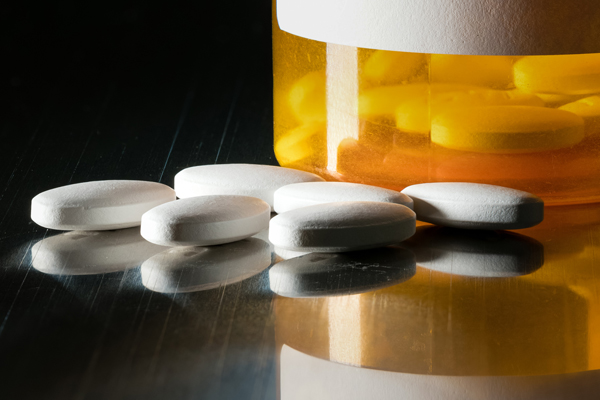Addicted individuals are often looking for ways to enhance or increase the effects of opioids or other drugs by combining substances. The term to describe how to increase a drug’s effects is to potentiate the substance. Simply, to potentiate an opioid drug means to max out the drug’s potential to intensify the euphoric effects of the opioid. The potentiation of opioids is also completed medically for patients who are not addicts but have developed a tolerance to their pain medications. Opioids are prescribed for acute and chronic pain in many medical conditions. Medical doctors, however, take precautions when prescribing opioids in combination with other medicines to help their patients get relief from pain. This practice is only safe when performed by a medical expert. The culture of opioid addiction and dependency often explores new ways to modify prescription pain medication so that they can be injected, snorted, or smoked. Crushing pills, cold water extraction, and certain chemicals will change the opioid medicine so that the opioid in the tablet is isolated to increase how rapidly it affects the person and how intensely. Altering the form of a drug to consume is not a new practice by drug addicts. Powder heroin can easily be snorted or swallowed, but it is most typically heated in water to be injected. Modifying or potentiating how to ingest drugs to attain a more potent high is commonplace in drug addict cultures. Still, in recent years during the opioid crisis, other methods to potentiate opioids have surfaced. 
How Are Opioids Potentiated?
The most common ways addicts potentiate opiates include consuming other opioids and prescription medications, consuming alcohol, and benzodiazepines such as Xanax, using over the counter medications such as Benadryl or other antihistamines, or using herbal remedies such as Valerian or St. John’s wort. Additionally, other methods to potentiate opioids are to ingest sleep aids and sedatives, soaking opiate pills in water to break down time-release sealants, particularly with time-released oxycontin, as well as consuming grapefruit juice. All of these potentiators can be lethal when combined with any type of opioid, including drinking grapefruit juice.
Mixing Opiates With Other Drugs for a Stronger Effect
The reason heroin, prescription pain killers, Fentanyl, and other opiates can be deadly when mixed with grapefruit juice is that grapefruit juice affects how a person’s body metabolizes or breaks down the drug. The Federal Drug Administration now requires that all medications, including prescription opioids, list dangerous interactions from grapefruit juice. For addicts, they desire the effects that grapefruit juice has on their drug of choice, either heroin, prescription pain killers, fentanyl, and others because it increases the potency of the drug.
Many drugs are broken down (metabolized) with the help of a vital enzyme called CYP3A4 in the small intestine. Grapefruit juice can block the action of CYP3A4, so instead of being metabolized, more of the drug enters the blood and stays in the body longer. The result: too much drug in your body. (FDA)
The answer as to whether or not someone can potentiate opioids is YES. However, doing so is extremely dangerous. The National Institute on Drug Abuse, NIDA, reports that drug potentiation, which is often combining opioids with other substances, particularly other substances that affect the respiratory system such as alcohol or benzodiazepines increases the chances of a fatal accidental overdose.
Combining opioids and benzodiazepines can be unsafe because both types of drugs sedate users and suppress breathing—the cause of overdose fatality. In 2015, 23 percent of people who died of an opioid overdose also tested positive for benzodiazepines. (NIDA)
Evoke Wellness at Miramar has been providing specialized treatment programs for opioid addicts who potentiate their opiate drugs. Our treatment programs for opioids and their potentiators address multi-substance addiction in its entirety. Since addiction is a treatable condition, our clients get treatment for all of their drug use, which includes potentiators. This is critical considering that many opiate addicts will remain clean from heroin or other opiates but switch to abusing a potentiator, such as alcohol or benzodiazepines, or over the counter medications. The steps we take to help our clients come to terms with all of their addictions, not just their drug of choice or primary addiction to an opiate, begins with our medically supervised detox. Our detox programs are overseen by medical practitioners who specialize in addiction. They utilize their training and education to recognize when the presence of other drug withdrawal symptoms occur, which indicate addition or use. Additionally, every client has full panel blood work and physical examinations, which also help reveal what types of drugs are in their system.
Opiate Detox and Addiction Treatment
Our opioid detox prescribes safe medications that eliminate opioid withdrawal symptoms. Each client is allowed to rest and recover during their detoxification. Our detox center offers care for opiate addiction with potentiated drug use. Once a client completes our Florida opioid detox, they are encouraged to enter one of our specialized drug treatment programs. We offer inpatient, intensive outpatient, outpatient, and sober living treatment programs for men, women, and young adults. Each treatment program relies on evidence-based forms of therapy, individual counseling, group counseling, and holistic therapy methods for treatment. Evoke Wellness at Miramar also provides relapse prevention programs, anger and stress management programs, and involvement in 12 step meetings, or other recovery-focused support groups, as part of our addiction treatment programs.


